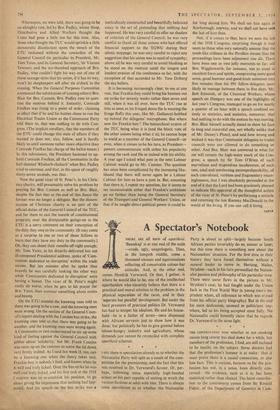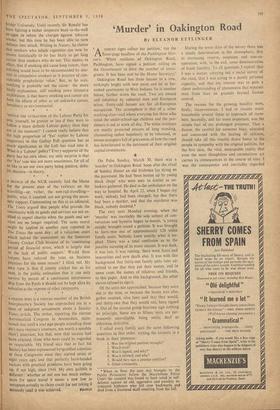THE CONTROVERSY over whether or not smoking causes lung cancer
has died down for a while, but members of the profession, I find, are still inclined to be touchy on the subject. Some doctors feel that the profession's honour is at stake: that it must prove there is a causal connection, or else lose face. This is curious, because so far the pro- fession has not, in a sense, been directly con- cerned : the evidence, such as it is, has been statistical rather than clinical. The latest contribu- tion to the controversy comes from Sir Ronald Fisher, of the Department of Genetics in Cam- bridge University. Until recently Sir Ronald has been fighting a rather desperate back-to-the-wall struggle to refute the charges against tobacco smoke; but this time he has been able to turn defence into attack. Writing in Nature, he claims that smokers who inhale cigarettes can now be shown statistically to be less likely to get lung Cancer than smokers who do not. This means, in effect, that if smoking did cause lung cancer, then inhaling would have to be recommended by doc- tors to compulsive smokers as 'a practice of con- siderable prophylactic value.' But, as he says, smoking is probably not the cause : the more likely explanation, still needing more intensive exploration, is that heavy smoking and cancer are both the effects of other as yet unknown causes, hereditary or environmental.



































 Previous page
Previous page